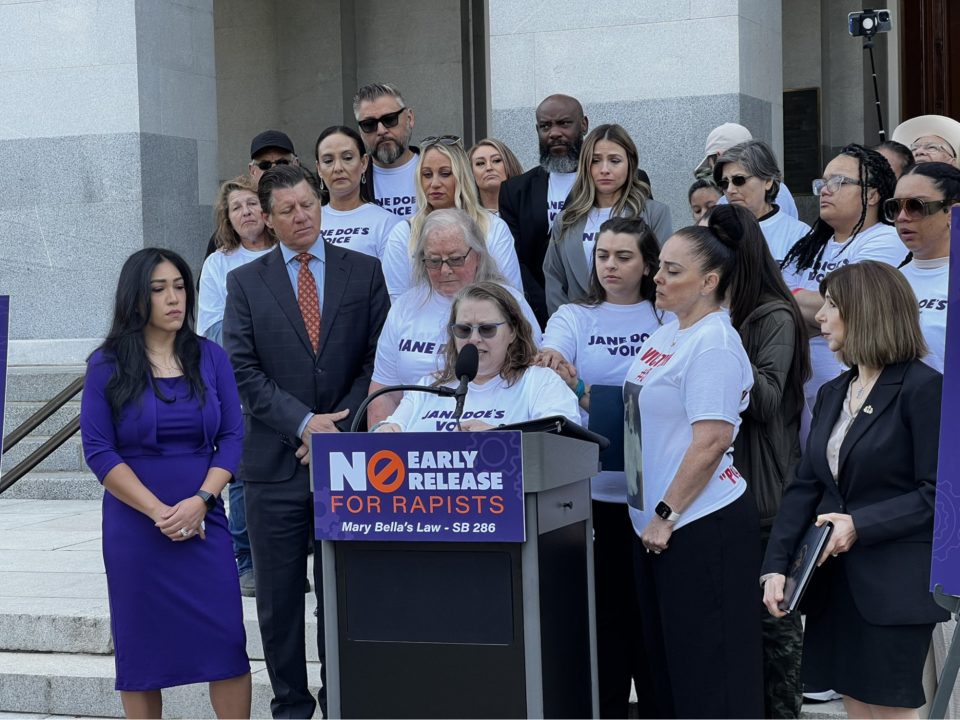“Survivors of violent sex crimes and the families of murder victims should never have to live in fear that their attacker could walk free long before serving their full sentence,” argues Republican Senate Minority Leader Brian Jones.
In July of last year, the California Board of Parole Hearings considered the release of violent criminal and convicted child rapist, Cody Klemp. In 1994, Klemp was found guilty on 10 counts of rape, 10 counts of oral copulation on a child, and 20 counts of committing lewd and lascivious acts on a child.
But—depending on who you ask, that’s only the tip of the iceberg. Klemp’s niece testifies that she was raped by her uncle over 100 times after she was put into his custody sometime between the ages of 13 and 14. In addition to the rape, she was tortured nearly every day for a year.
For his heinous acts, Klemp was sentenced to 170 years in prison.
And yet, in November of 2023—less than 18% of the way through his sentence—he was granted early parole by the board via California’s Elderly Parole program.
You are not alone in wondering why this was allowed to happen.
“That sadistic man violently attacked me, choked me, kicked me, and spit on me during his rape,” Klemp’s niece, Mary, told the California Department of Corrections and Rehabilitations. “I stand here asking you will you protect us? Will you keep the monster locked in the only cage that’s ever been able to protect us?”
“Although this practice of early release is far from unusual these days, considering the inmate’s particularly violent criminal history and admissions to the parole board itself, it is shocking that such a release would be considered,” said Riverside County District Attorney Mike Hestrin. “It is devastating to victims to relive the trauma when justice was already established several years prior.”
California Senate Minority Leader Brian Jones argues it’s due to “a dangerous loophole;” a program which allows certain offenders over the age of 50 a chance at parole after serving 20 years behind bars. The number was once 60 years of age—until the passage of Assembly Bill 3234, approved by Governor Governor Newsom in 2020. AB 3234, passed approved exclusively by Democrats, lowered the age threshold by ten years.
Jones argues that “proponents of AB 3234 vowed that sex offenders and rapists would not be eligible for Elderly Parole, but ‘accidentally’ left out that key protection—and have refused to fix their mistake.”
“Releasing these rapists under the so-called ‘elderly parole’ is not only an insult to victims but a grave danger to Californians,” said Jones. “Survivors of violent sex crimes and the families of murder victims should never have to live in fear that their attacker could walk free long before serving their full sentence. But under current law, the system is rigged in favor of criminals, forcing the Board of Parole Hearings to justify why these offenders shouldn’t be released. That’s completely backward.
Jones has introduced Senate Bill 286—also known as Mary Bella’s Law—with the intention to, in his words, “finally correct this dangerous loophole, ensuring that rapists, child molesters, and murderers serve their full terms—no matter their age.” The bill would serve to protect rape and abuse victims and their families suffering from the emotional distress of experiencing the early release of their violator.
This story has a silver lining, of sorts, for Klemp’s victims. Last July, the Board of Parole Hearings rescinded the earlier recommendation to grant Klemp early parole. Then, recently, SB 286 got the unanimous approval of the Senate Public Safety Committee, which Jones touts as a “win for public safety and a message to crime victims that they have not been forgotten.” After amendment, the bill will be re-referred to the Committee on Appropriations.
“Californians have had enough of the soft on crime policies that prioritize criminals over their victims,” said Sen. Suzette Valladares, who attended the Mary Bella’s Law press conference with Crime Victims United and over 40 victims and victim advocates—held in conjunction with both Crime Victims Rights Week. “We must once again make public safety a priority in this state.”
Klemp’s niece also attended the rally. If it wasn’t evident already, she is the Mary referenced in “Mary Bella’s Law.” Though she must be pleased to see the bill appears to be moving forward with bipartisan support, she has described the experience of revisiting her trauma publicly as “the equivalent of slicing myself from top to bottom and just pouring bleach, and you have to kind of allow people to see how much you have been harmed.”


